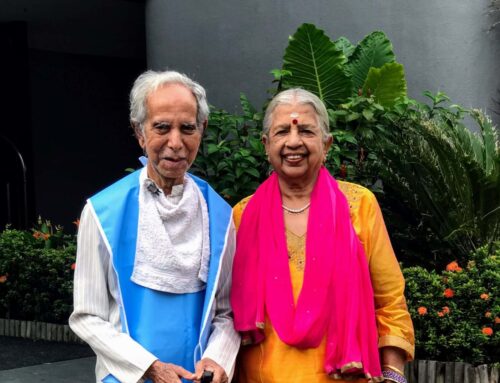An article inspired by the zero carbon house of my friend, the mathematician, Sujatha Ramadorai.
The National Conversation
How solar energy is shining new light on this country
Shoba Narayan
Jul 17, 2013
Sometimes the solution stares us in the face, to the point where we have to wear sunglasses. I speak about solar power, of course, and the recent news that Dubai International Airport’s Terminal D is going to use solar power to meet part of its energy requirements.
Abu Dhabi too has ambitious plans to continue its policy of installing solar panels in the desert to harness the sun’s energy.
Sustainability experts have welcomed these moves, even though they caution that solar energy can provide only a small percentage of the UAE’s energy. In Dubai’s Terminal D, the solar panels will only provide 1.8 per cent of the energy required to run the terminal.
What few speak about is how switching to solar will effect the image of the Gulf States internationally.
In a recent management class I taught, we did an interesting exercise where we linked countries with character. I made a list of nations and the 50 students, most of them with MBAs from the US, wrote out adjectives that they associated with each country.
France was associated with “style”. No surprises there. China was associated with being a “rising power”. Germany was associated with “precision”. India was associated with “colour”. The UAE was associated with “oil” and “wealth”.
I realise that these are off-the-cuff impressions but they contribute to a country’s brand identity. I also know that 50 global MBAs is a small sample. But I also believe that there is a kernel of truth in their descriptions.
The Gulf States, most often, are associated with “wealth”, and that is a flattering image. However they are not seen as pioneers in any regard.
But if countries like the UAE can change that impression if they desire it. Harnessing solar power provides an avenue for this change.
I am no scaremonger and I don’t believe that climate change will cause the oceans to deluge the world and bring it to an end.
But I also think that sustainability needs to be part of every government’s policy.
This is not only to prevent global warming, which it will, but also because it has been proven beyond doubt that sustainability is sensible both from an economic as well as an environmental point of view.
This is not a matter for debate any more. It is no longer about whether sustainable measures will help. Rather, it is about which ones will deliver maximum impact and how to get them to work.
Solar energy, as I said, is staring at most countries in the face and yet few have attempted to use it.
Abu Dhabi has already started this process with its Shams-1 plant, the largest completed solar power project in the Middle East.
Dubai also seems willing to jump on this particular bandwagon and so does Saudi Arabia, with its plans to draw a whopping 41-gigawatts of electricity via solar power by 2032, according to reports in this paper.
If they succeed, they will be pioneers in harnessing and using solar power. It will give a significant boost to their brand equity.
Changing a nation’s identity is possible. Sheikha Mayassa Al Thani has helped put Qatar on the map with her astute eye for art collecting.
By inviting so-called starchitects to build amazing modern buildings on Saadiyat Island, Abu Dhabi has placed itself in the conversations of architecture buffs like me. By partnering with world-famous institutions to fill those spaces, Abu Dhabi has continued those same conversations.
But none of these will have as rich and as deep an impact as solar energy. The fact that the Gulf States don’t need to go solar makes the case even stronger.
It is time that the UAE staked out its future in this area. By supporting desert solar projects, the UAE will not just improve the country. The trickle down effect will improve the world.
The next time I ask my students what to associate with the UAE, I hope that they will say “solar energy”.
Shoba Narayan is the author of Return to India: a Memoir




Nice article Shoba! Interesting because one of my colleagues is advising a US solar company on strategy. India and Africa are blessed with high insolation (sunshine per unit area) because of their position on the earth. Europe/USA have lower insolation. Other variables are the efficiency of conversion, cost of storage and transmission (most of it is local) etc. I would imagine the Middle East ranks highly on everything – good sunshine, lots of money and a government committed to spending it wisely in this regard.
It would be very interesting if “solar power” does enter the human aesthetic – about time. Sort of like a return to roots — all our Hindu scriptures talk about Sun energy and Sun worship and drawing power and clarity and illumination from the Sun. Perhaps this 21st century is when we really make good on the worship and engineer a way to make it so. Solar energy is free and clean and cannot (generally) be corrupted by politics or nepotism, so perhaps this is the answer to people solving their internecine conflicts and making a better world.
I completely agree, Naina.